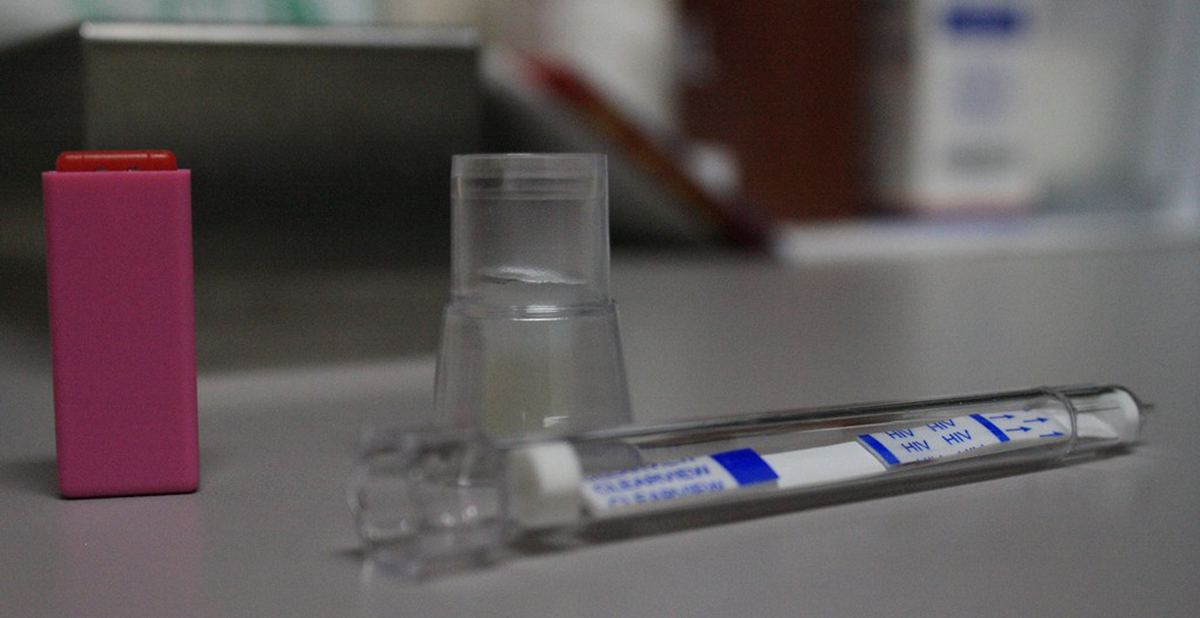Table of Contents
What Happens To The Body When You Have HIV
HIV, the Human Immunodeficiency Virus, invades the body's immune cells (CD4 cells and T-cells) to make copies of itself. Unlike other viruses, HIV does not get cleared from the body by the immune system. It can, however, become part of a patient's DNA and lie dormant for many years — even decades.

Most people who are infected with HIV will have characteristic symptoms within a month or two. Because these symptoms are quite general, it's hard for patients to recognize them as the symptoms of a HIV infection. We've all had a fever, headache, muscle aches, joint pain, a sore throat and diarrhea. Get these symptoms, and you'll probably think you have the flu rather than immediately suspecting HIV. Primary HIV infection also often comes with a skin rash, chills, mouth and genital ulcers, and swollen lymph glands.
After the initial infection, infected people may feel and look healthy for a long period. Some experience persistently swollen lymph glands during the latent stage of infection, something that one can easily miss. Mild chronic symptoms like fever, fatigue, diarrhea, weight loss, cough, and shortness of breath will be noticed. They could easily be attributed to unrelated things like being stressed or smoking cigarettes. And remember, not everyone with HIV will develop these symptoms. During this stage, you can pass HIV on to others though you may have no idea you have it.
Over 1.1 million US residents are currently living with HIV. According to estimates, one in six HIV+ people are unaware they're infected. Not being aware you're infected means not receiving any treatment.
AIDS stands for Acquired Immunodeficiency Syndrome, and it's the final stage of HIV. By the time you get there, your immune system will have been severely compromised and you'll be prone to infections that aren't usually a big deal in healthy individuals. Rapid weight loss ("AIDS wasting"), recurring fever and night sweats, extreme fatigue, swollen lymph glands, chronic diarrhea, sores in the mouth, anus and genitals, and colored blotches under the skin can all be part of AIDS.
Pneumonia, dementia, kidney disease, lymphoma, cervical cancer, anal cancer, tuberculosis, and diabetes are all often associated with AIDS as well. AIDS is not a disease in itself — rather, it's the final stage of HIV, during which your immune system will have become damaged to the point that your body will not be able to fight off opportunistic infections.
If you're HIV positive without knowing it, you may live for around 10 years without having a clue that your body is on its way to AIDS. When you finally seek treatment for an opportunistic infection or obvious symptoms and get diagnosed, it may be too late. In 2010, an estimated 15,529 US residents with an AIDS diagnosis died. This will be in your future if you are not diagnosed in a timely manner too.
Living With A HIV Diagnosis
What if you get tested and find out you are HIV positive? You'll be terrified and wondering what to do next. You will also be able to access anti-HIV (antiretroviral) drugs, which stop the HIV virus from reproducing and serve to keep your immune system as strong as possible.
There are now over 20 different antiretroviral (ART) drugs, though they're not all available in every country. If you live in a developed nation, you are more likely to have access to the most effective HIV treatment. HIV treatment usually involves a combination of three different drugs, which may be combined into one pill.
See Also: HIV/AIDS Infected?: Do not panic, read this!
Though it's incredibly important to take all the doses of HIV drugs, these drugs offer many HIV positive people a long and relatively healthy life. You and your immune system will be monitored frequently to see if the drugs are working and to keep you healthy.
People on ART have a very good chance of enjoying a healthy, productive and normal life. With treatment, HIV does not need to progress to AIDS. Living with HIV may be frightening, but having treatment is a whole lot less scary than refusing to get tested and dying of AIDS.
- Photo courtesy of Wheeler Cowperthwaite by Flickr : www.flickr.com/photos/wcowperthwaite/5774152743
- Photo courtesy of Wheeler Cowperthwaite by Flickr : www.flickr.com/photos/wcowperthwaite/5774037189


Your thoughts on this